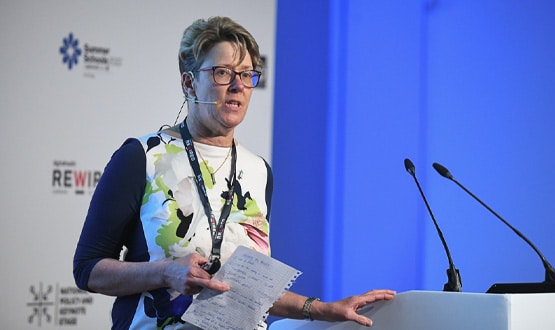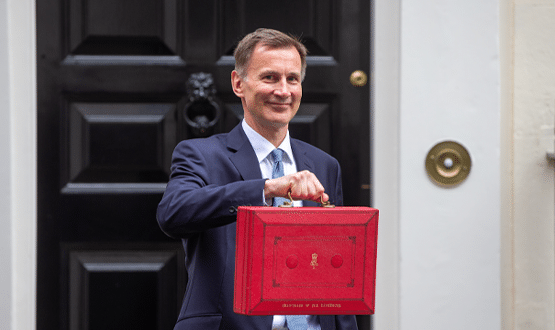Sixteen tasks for NHS England in 2016
- 31 December 2015

Beverley Bryant, NHS England’s director of digital technology, has laid out a busy schedule for the start of the New Year. Taken together these projects will finish or enhance National Programme for IT-era programmes, progress the ‘paperless’ agenda, deliver on the ‘Personalised Health and Care 2020’ plans to support the ‘Five Year Forward View’, and address the ‘digital divide’:
1. The results of the ‘digital maturity assessments’ will be received in January 2016
In September 2015, Bryant outlined plans to give clinical commissioning groups overall responsibility for delivering the government’s core ambition for ‘paperless’ working in the NHS by 2018 and ‘digitally interoperable and real-time’ health and social care records by 2020. CCGs have been asked to create ‘local digital roadmaps’ to achieve these goals and trusts have been asked to fill out digital maturity assessments to inform them and to underpin a new digital maturity index that is due to be published in March 2016.
2. ‘Local digital roadmaps’ will be received by April 2016
The first stage of the road-mapping process was for CCGs to define “who is in their gang”. At the National Information Board meeting in December 2015 NHS England's Paul Rice confirmed that there are a total of 90 footprints, 52 of which are led by single CCGs and 38 of which comprise multiple CCGs.
3. Interface mechanism to support third party applications for Patient Online will be live by April 2016
The Patient Online programme has been set up to deliver the Conservative Party’s 2010 election pledge to give patients online access to their medical records. As of April 2015, most patients should have access to a subset of their GP record and some transactional services. By April 2016, they should have access to their full, coded, primary care record; and the 'Personalised Health and Care 2020' implementation plan says they should be able to download these into third party applications.
4. Promotion of GP service apps on NHS Choices
5. Increase in market uptake of the NHS e-Referral Service throughout 2016
A new e-Referral Service was promised in 2013, to replace the NPfIT-era Choose and Book. It had a rocky few weeks after going live in June 2015, but Bryant insists it is now stable. The target is for all NHS referrals to be made by e-RS by 2018.
6. Community pharmacies will get access to the NHS Summary Care Record
The development of the Summary Care Record as a national record to hold key information drawn from locally held, detailed care records was another NPfIT era project. It ran into repeated concerns about consent and confidentiality, but finally reached 50 million patients at the start of 2015. Community pharmacists have called for access to the record for years, as it holds details of allergies and current medications. They were finally promised that they would get it in June 2015.
7. Rollout of enhanced functionality for GP2GP
The GP2GP service, which enables practices to transfer patient notes, was another NPfIT-era project; and one that went relatively smoothly. However, it has some limitations, particularly around the type and size of files that can be transferred, which are being addressed in a series of updates.
8. GP systems will provide the ability to receive structured clinical documents directly from providers as part of e-discharge
NHS England has included a requirement for providers to send discharge letters to GPs electronically in the NHS standard contract. Although the October 2015 target for this to happen was not monitored, questions about e-messaging are included in the digital maturity assessment.
9. Launch of an innovation fund focused on mental health digital tools
In September 2015, life sciences minister George Freeman announced a £650,000 prize fund to develop mental health apps for the NHS. These will subject to the new ‘endorsement model’ being developed NICE, Public Health England, and the HSCIC that will replace the old Apps Library on NHS Choices.
10. Integration of 111 online Alpha with NHS.UK Alpha and further Alphas of NHS.UK focusing on transactions and personalised information
'Personalised Health and Care 2020' promised a new “digital front door” for the NHS, combining NHS Choices and the NHS 111 service that replaced NHS Direct. An alpha version of the new NHS.uk service was launched in October 2015, and will be developed via a series of rapid sprints.
11. Improvements to NHS Choices, including medicines information
12. Mobile access to service information across urgent, emergency and other clinical care settings
13. Further work to develop the digital skills of citizens through NHS England's digital participation programme
The government estimates that 9.5 million people in the UK basic digital skills and that 6.5 million have never been online. NHS England’s ‘widening digital participation programme’ is focused on using health to encourage them to use modern technologies.
14. Engagement around the recommendations from the Martha Lane Fox review and NHS England's delivery plan
Shortly after the 2015 general election, health secretary Jeremy Hunt announced that he was asking entrepreneur Martha Lane Fox to develop proposals to improve the uptake of digital innovations in health. Lane Fox responded in December, when she called for new digital services to “reach the furthest first”, for promotion of the digital GP services that already existed, for free wi-fi across the NHS estate, and for a renewed focus on improving the digital skills of staff.
15. Children's health digital strategy published in summer 2016
16. Recommendations will be made to the Secretary of State for Health on consent and data-sharing policies
The NHS has been criticised for failing to share data when it should, and for failing to develop proper confidentiality and consent policies for important projects, such as care.data. National data guardian Dame Fiona Caldicott has been asked to review the communications and opt-out plans for a revived version of the care.data project, and has indicated that it will need to meet a number of tough criteria to proceed.
Read more predictions about what 2016 will hold in today's features section, where sixteen experts from central bodies, individual trusts, pressure groups and suppliers have been asked what they think the year will hold; with special contributions from Wales, Scotland, and Ireland.



